Students and community-members flooded Blanket Hill Saturday to participate in the annual May 4 Commemoration, which honors the victims of the 1970 massacre.
Speakers at the event stressed the importance of student protests and the protection of free speech while the nation experiences some of the biggest student protests in decades.
Student leaders Sophia Swengel and Julie Buonaiuto spoke at the event, along with May 4 survivor Chic Canfora, provost Melody Tankersley and University President Todd Diacon.
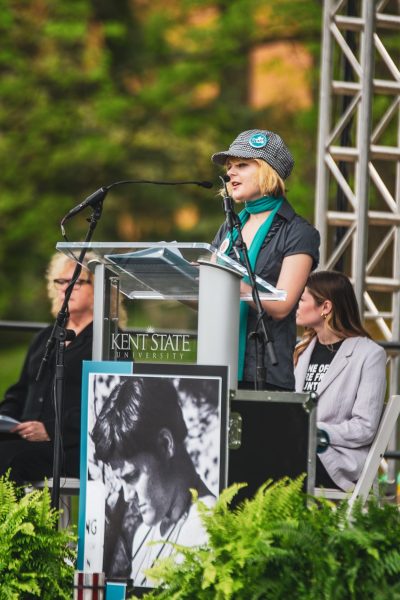
The event was also attended by over one hundred students and community members protesting the Hamas-Israel war. The activists, organized by Kent State’s chapter of Students for Justice in Palestine (SJP) and United Students Against Sweatshops (USAS), called for “disclosure and divestment” of university funding to weapons manufacturers that supply and profit from the war in Gaza.
The commemoration was opened with an acoustic performance of “Ohio” by Neil Young, a song written about the shootings. The Kent State Chorale also sang an arrangement of the song later in the event.
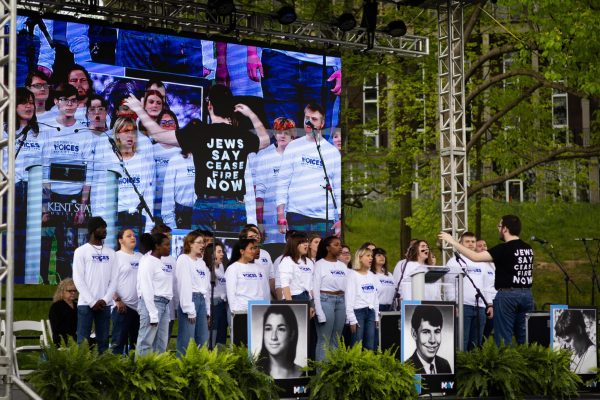
In her speech, Canfora, who witnessed the May 4 shootings as a student and whose brother Alan was shot on May 4, called the School of Peace and Conflict Studies a “living memorial to May 4.” The school was founded in 1970.
“Your own presence here today, your participation in this week’s commemoration events, your participation in the candlelight walk and vigil last night and your activism on campus in protesting injustice here and across the globe are themselves living memorials,” she said.
Swengel, a 2022 recipient of the Alan Canfora Activism Scholarship, spoke after Canfora and called out the war in Gaza specifically, calling it a “genocide.”
“Once again, students in America are taking a stand against bloodshed abroad, much like they did against the Vietnam War back in the 60s,” she said. “Tent cities, not unlike the one built on our own campus by students protesting the construction of the gym annex, stand as living breathing monuments to the willingness of students to speak out against genocide and for what they believe in.”
This is in reference to the widespread protests and encampments at multiple universities across the country in solidarity with Palestinians displaced and killed in Israel’s war in Gaza that began last October.
Swengel said the actions of repression in the face of student protests today are all too reminiscent of what happened at Kent and Jackson State in 1970.
“Repression can only breed cultural suppression,” she said. “And speak our minds we will, for it is the most American thing we can do.”
Swengel stressed freedom of speech and the public’s right to redress their grievances to the government through protest, and she condemned Speaker of the House Mike Johnson’s demands that the National Guard be sent to universities where student encampments are taking place.
“This recognition has reached [a] fever pitch in recent weeks, with the eruption of pro-Palestine protests at universities across the country,” she said. “It is hard to read the news of universities shutting down campuses and expelling protesting students, police brutality against peaceful protestors and the speaker of the house ludicrously suggesting that these campuses deserve the National Guard’s presence and not think of or hear nods of what happened here on this very ground fifty-four years ago.”
Swengel condemned state violence in all forms — from 1970 and today.
“We are also not soldiers, and the government has no authority to turn us into martyrs,” she said. “As Americans, we are fifty-one years past the last draft and safe from bombs dropping over our heads. Yet, death on our soil rocks us. Whether the year is 1970 or 2020. And as I watch the news, I can only hope that we as a society breed no more martyrs and strip no more families of children, siblings, partners, friends.”
In her speech, Undergraduate Student Body President Julie Buonaiuto, a senior marketing major, stressed the legacy of activism on Kent State’s campus.
“What I know today and take immense pride in is that the spirit of activism is alive and thriving in our students,” she said. “This fire is woven into us, and it burns just as bright as it did fifty-four years ago.”
Buonaiuto, like Swengel, addressed the timeliness of the memory of May 4 in relation to what is happening on American campuses today.
“We are living in a time when the events of May 4 are more relevant than ever,” she said. “It is imperative that we remember that student voices should be uplifted and listened to, not met with violence.”
When President Todd Diacon approached the podium to give his speech, community and student protestors holding signs and Palestinian flags approached the stage silently. They stood directly in his line of sight as he addressed the audience.
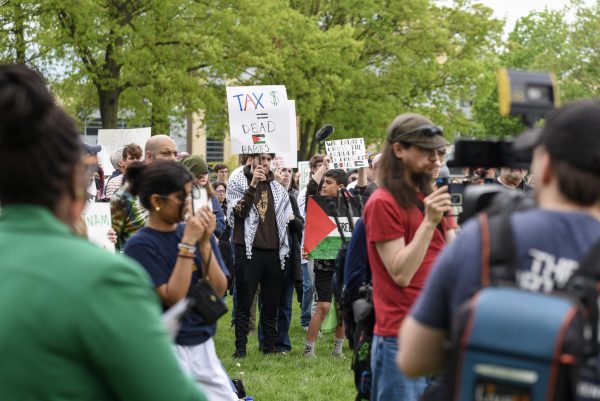
Diacon echoed Swengel’s and Buonaiuto’s comments about the parallels between Kent State and protests happening currently around the nation, and he addressed another lesson he said should be learned from May 4.
“There’s a lesson from Kent State that is much less mentioned at the moment but that is equally important,” he said. “I’m talking about the importance of maintaining a civic dialogue and the very real dangers of polarization, demonization of one’s opponents, and even the dehumanization of one’s opponents.”
As Diacon spoke, he looked at students in keffiyehs (traditional Middle Eastern headdresses), holding signs calling for the university’s divestment from weapons manufacturers that directly profit from the war in Gaza.
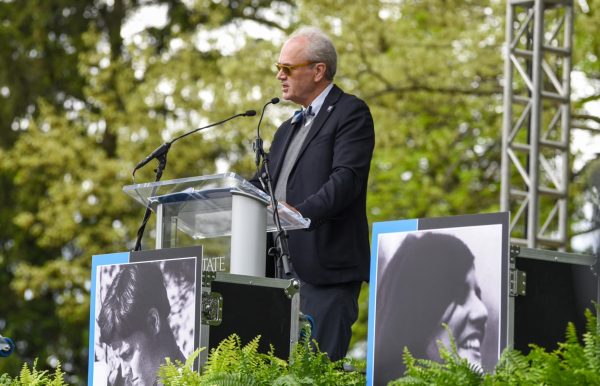
Diacon addressed the protestors but not their demands that he act.
“I honor the presence of our protestors,” he said. “I appreciate the attitude that you have brought today, just as I would honor the presence of those who might disagree with you and appreciate the attitude that they would bring today.”
After Diacon closed, an elderly man stood from the audience with a fist raised in solidarity and turned to the protestors.
“We’re with you,” he said.
Leah Shepard is a reporter. Contact her at [email protected].


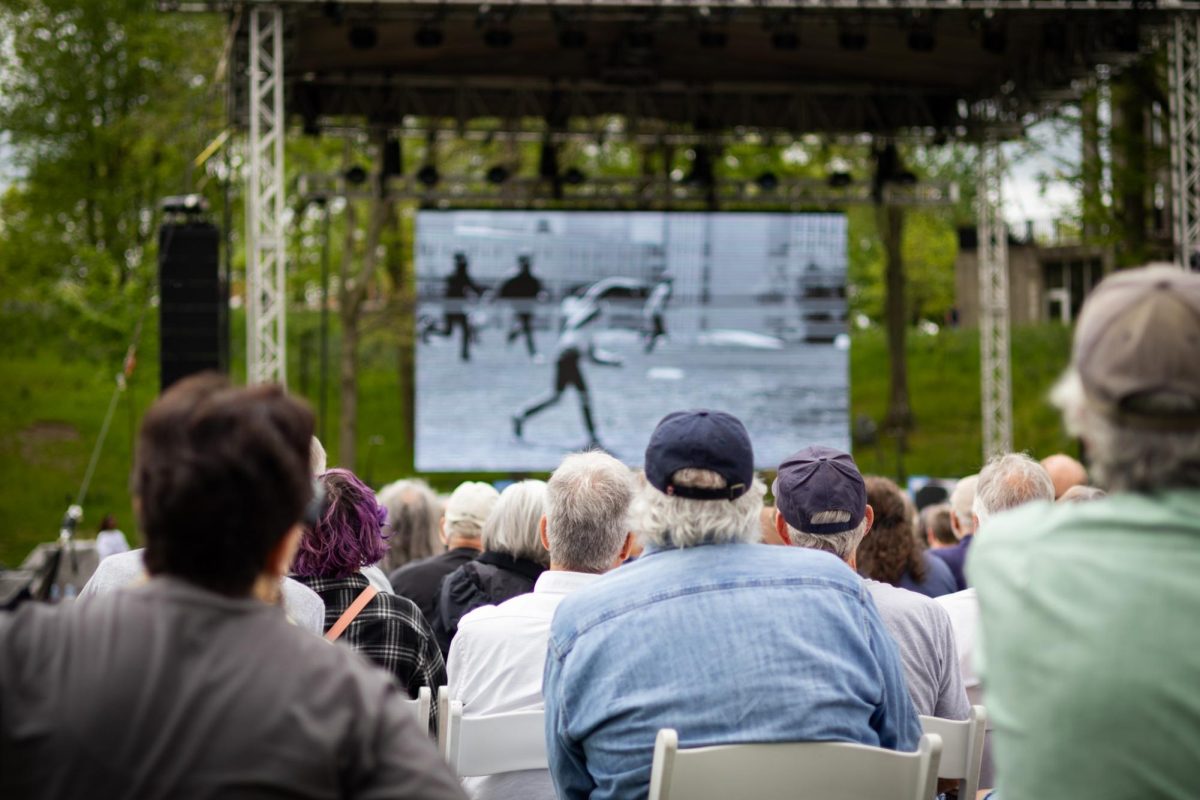
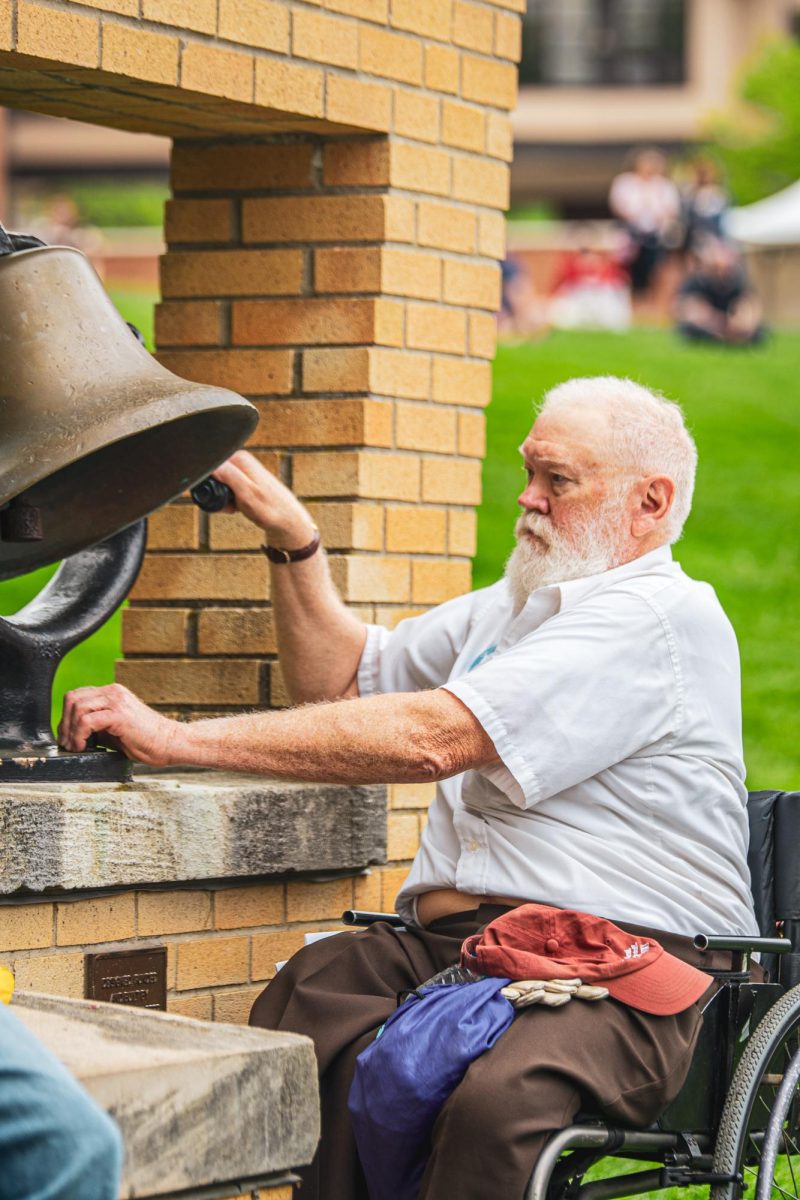
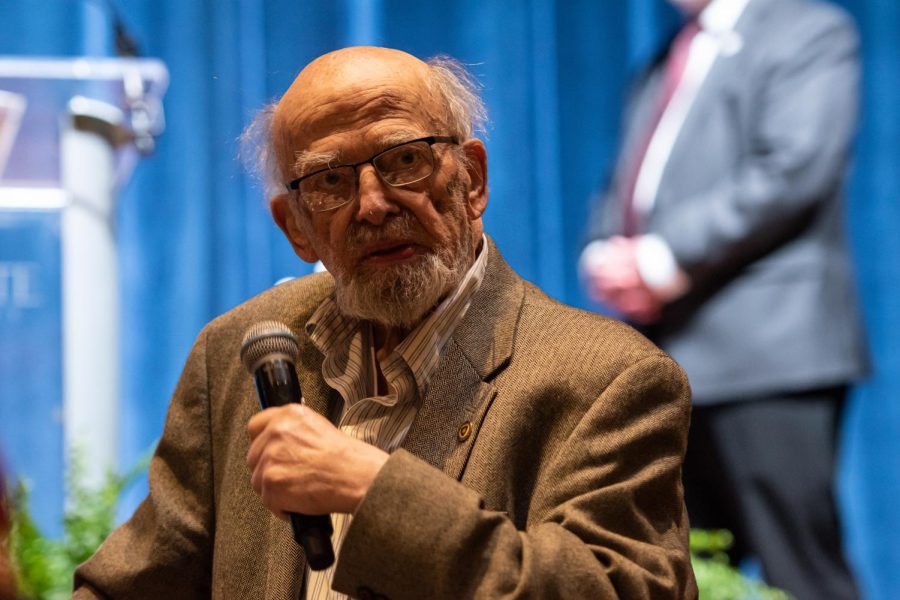
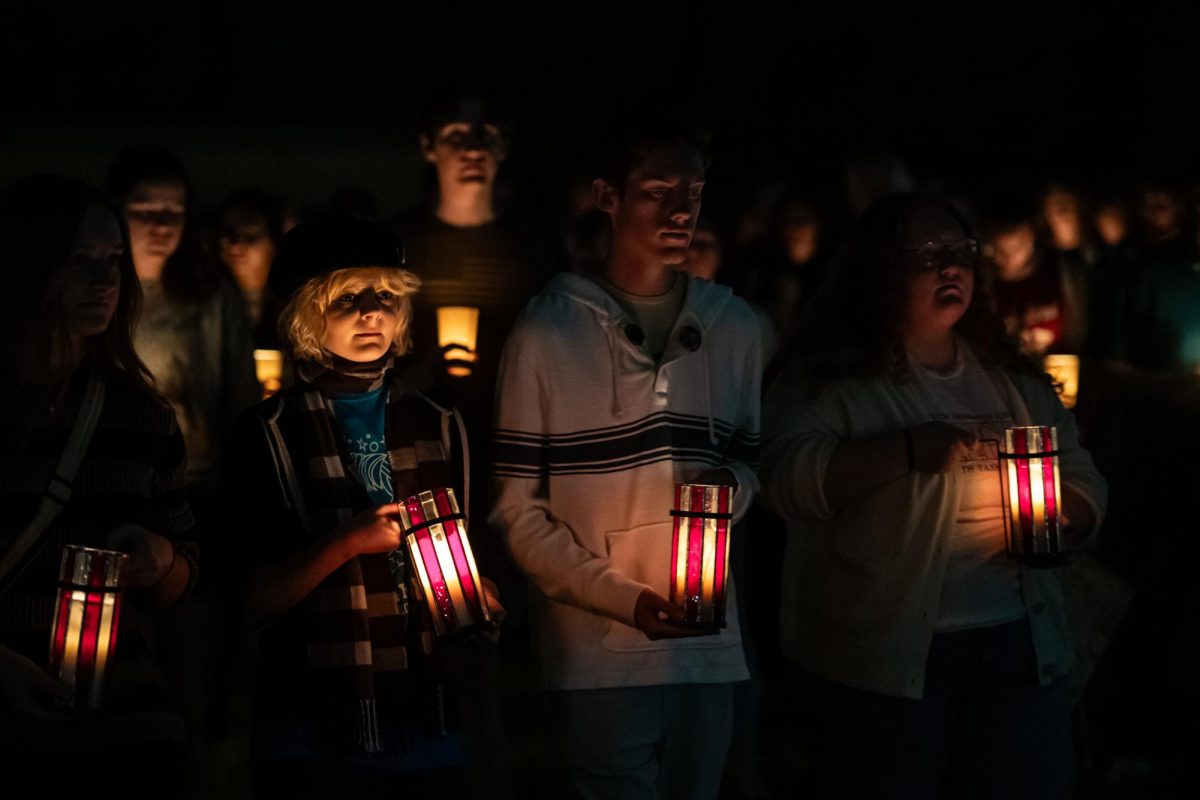
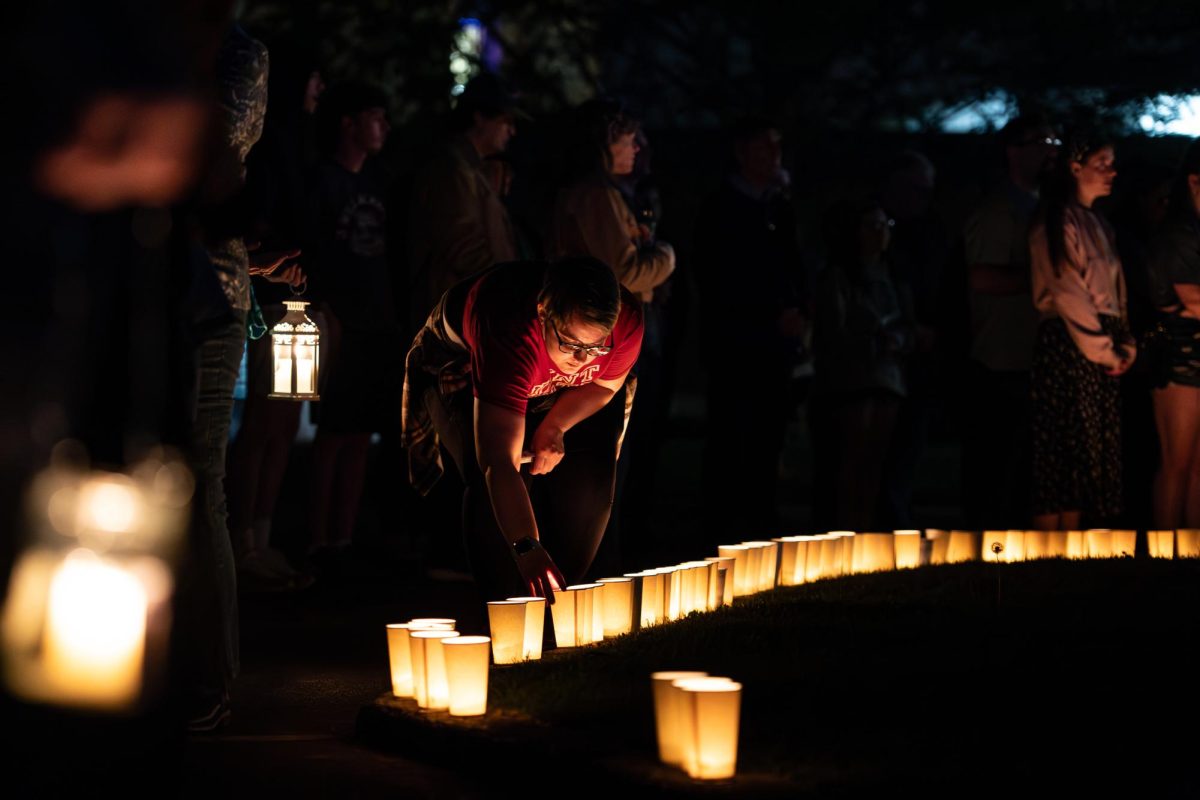
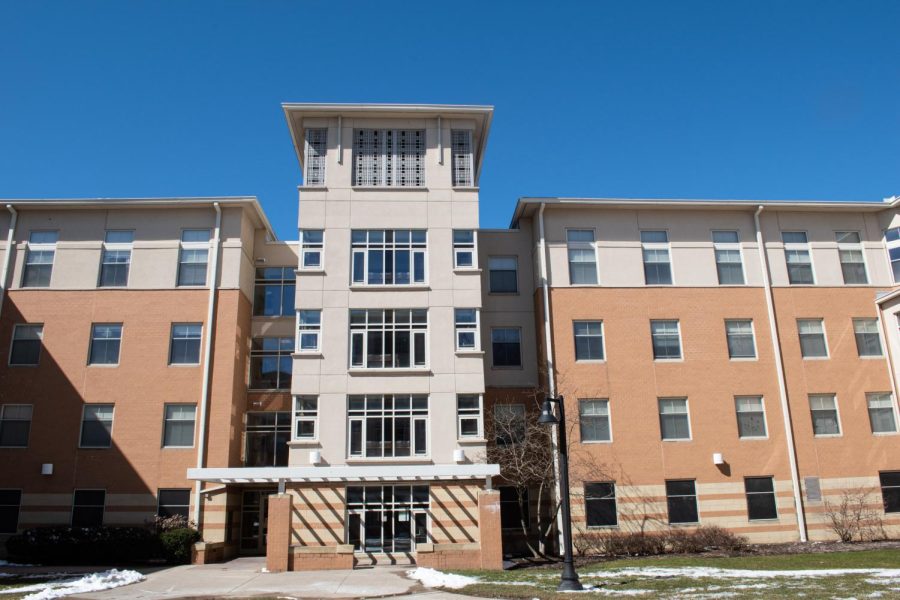
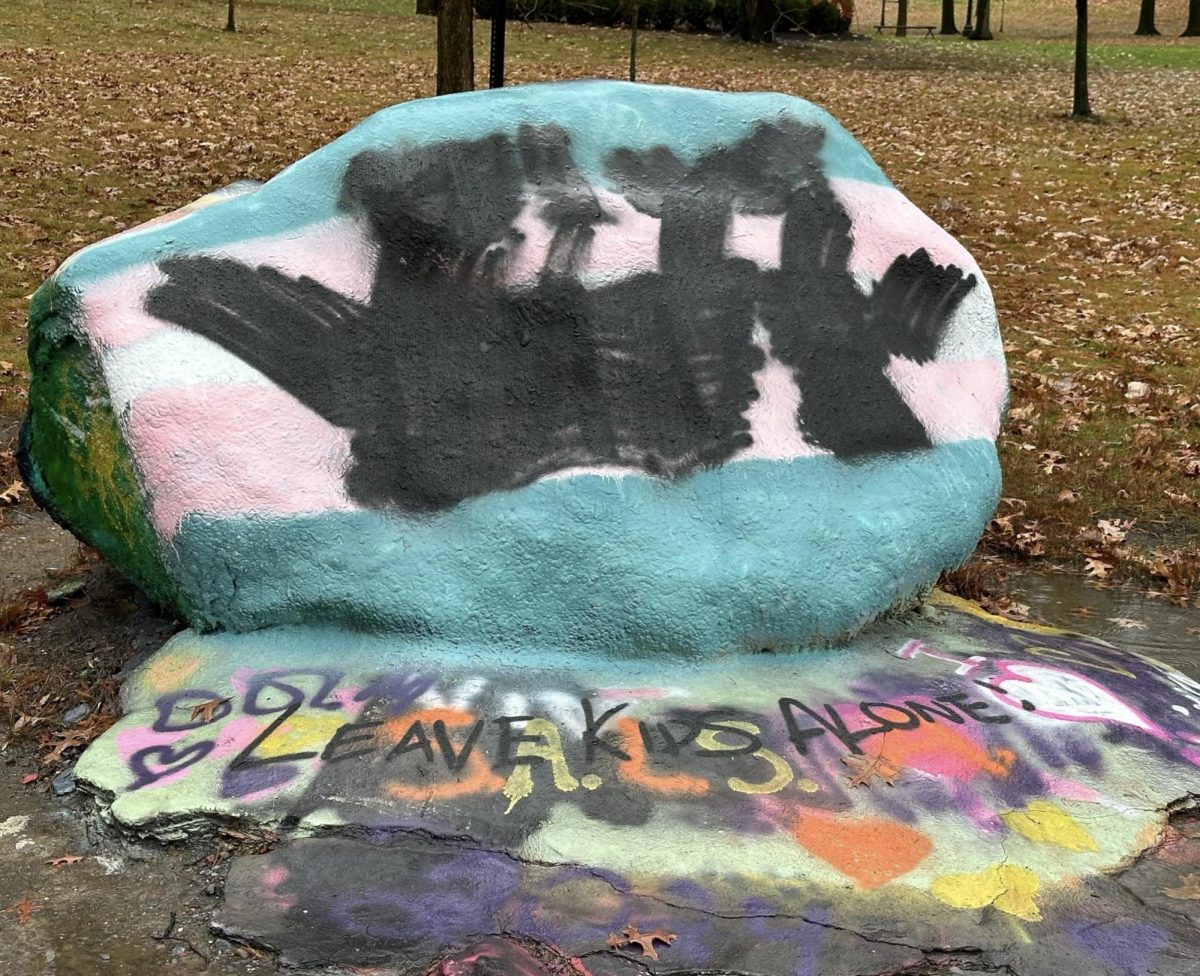




Barry Dunietz • May 5, 2024 at 10:45 pm
Indeed following Deacon message:
Need to remind LS and the student organizations behind the protests… Ceasefire was in place before October 7 Hamas attack that started the war. The on-going war can end once Hamas accepts offered ceasefire deal, releasing the hostages and accepting their defeat.
Hamas cannot be part of the long term plan for rebuilding Gaza and must be removed from any control of governance for the benefit of both Gazan and Israeli people.
Any true pro Palestinian protest must include calls to Hamas to take these steps.